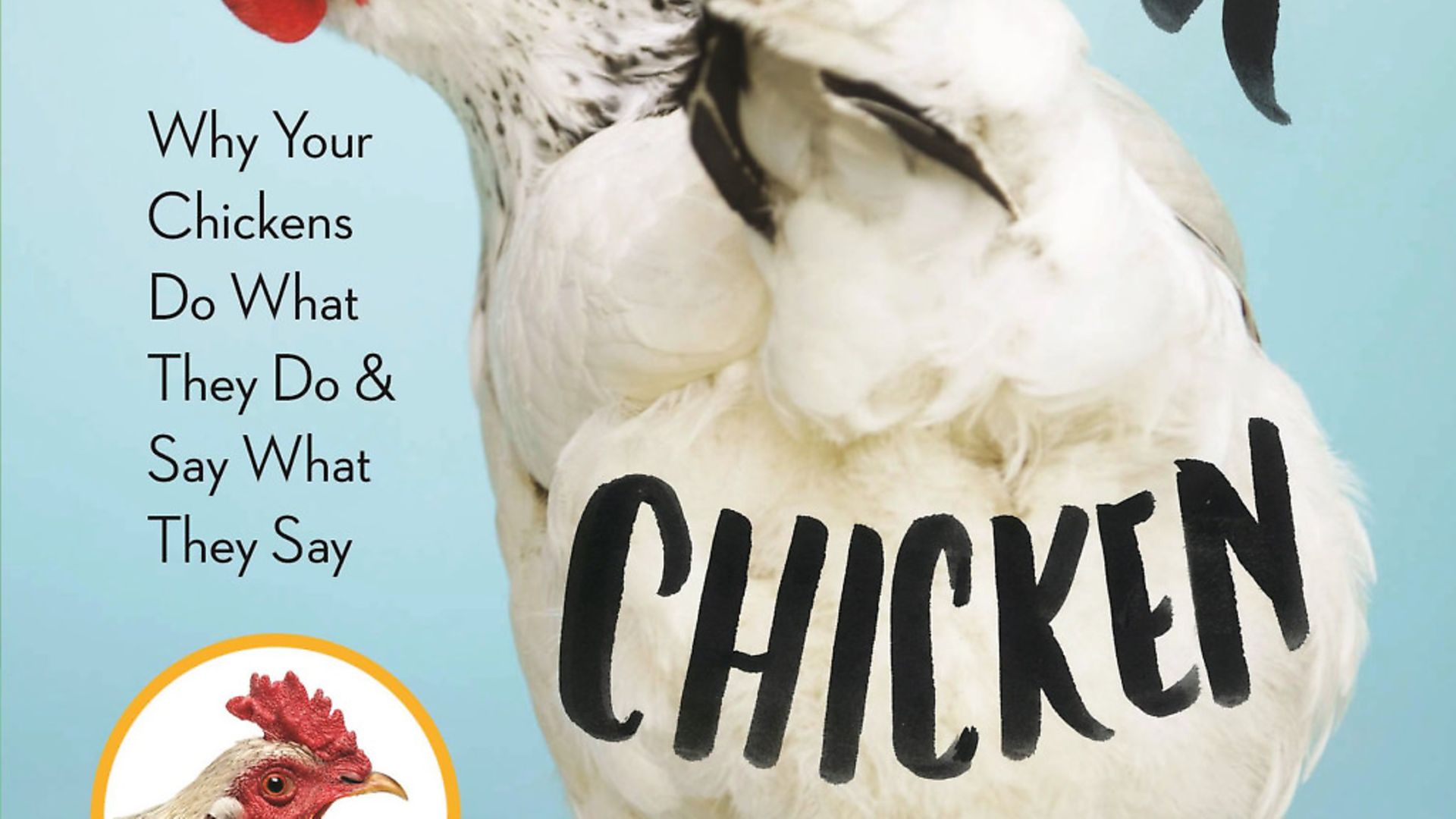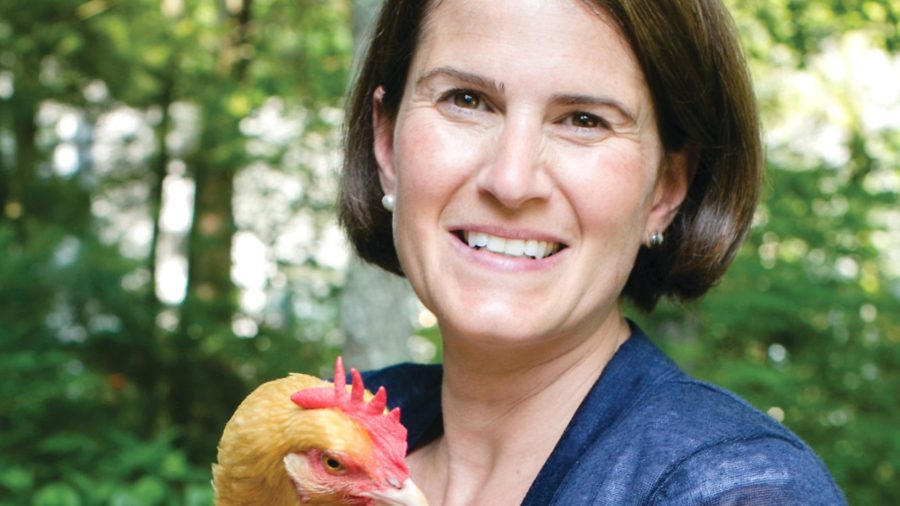In this extract from her book “How To Speak Chicken,” writer Melissa Caughey considers the themes of play, trauma, and loss.
Chickens actively seek out happiness and pleasure. Their lives revolve around feeling good. Some chickens are rebels and thrill seekers. These are the ones that dare to cross the road even when no other chickens will follow. These are the ones that will meet you at the door, step inside your home, try to get over the garden fence, and even hide a nest full of eggs far away from the coop. Some chickens even choose their human flock over their chicken flock.
Sometimes chickens become bored and frustrated. This is especially true in winter, when they may not be able to free-range and their access to fresh green foliage and grass is cut off. Just as with humans, being literally “cooped up” can lead to naughty behavior to pass the time. With chickens, this can include ganging up on a lower-status hen, sometimes with relentless pecking, feather pulling, and drawing blood.
During these times of boredom and aggression, distractions can often provide a solution. When they have something fun to do, their behaviour improves! Chickens will investigate and amuse themselves with just about any object in their environment. They adore investigating new things, they quickly learn to perform tricks, and they enjoy staring at themselves in a mirror. It never ceases to amaze me how inventive chicken keepers can be in providing entertainment for their flocks. From offering them veggie piñatas of cabbage or cauliflower to peck at, to building them climbing structures and swings, we can enrich their lives. My girls love it when I rake up big piles of leaves in the autumn. They scratch around and disappear into the heap as they seek out bugs and hidden mealworms that I toss out for a chicken treasure hunt. They also do silly things that only they understand, like the time Tilly found a small stick covered with fresh leaves and decided to drag it all over the yard. It became almost like her friend. She dragged it everywhere that day, and just when I thought that she had abandoned it, something clicked and she ran back after it to drag it along on the day’s next adventure.

Trauma
Chickens react to horrible experiences the way many other animals do: They can sink into a depression and show signs of fear and distress for a long time afterward. I saw this in a friend’s flock after a weasel snuck in and killed nearly all of her two dozen hens. Only three of them escaped to the rafters. One had a bite wound on her ankle and was visibly shaken.
Once brought to safety, the three survivors seemed to suffer some sort of post-traumatic stress. They stopped laying eggs and spent their days hiding. My friend spoiled them with fresh vegetables and added new roosts and other distractions. It took months, but eventually the traumatized hens began behaving more normally and were able to become part of a new flock.
Studies have shown that chickens recover more quickly from stressful situations when in the company of friends. They associate being with their flock as being safe and prefer to be with familiar chickens over unknown ones. With familiar companions, every chicken knows where she stands. With unknown chickens, rankings in the pecking order must be established, which is stressful for them.
Mourning and Loss
As a hen nears the end of her natural life, she often goes off and finds a quiet place away from the rest of the flock. During this time, the other members of the flock visit, one by one or a couple at a time. To me, they seem sad. They “chat” through verbalizations and body language. They hang their heads low to get on eye level with the dying chicken. Their coos are quiet, soft mutterings that you have to lean into to hear — chicken whispers. They move slowly and cautiously, considerate of disrupting their flock member. Some linger, while others potter around. Some sit with the dying chicken. Some keep returning. I watched some hens try to motivate Tilly by carefully scratching in the coop’s pine shavings right in front of her, as if to say “Get up, please.”
However, once they have made their peace, they leave and do not turn back. The dying chicken passes alone. The others have returned to doing what the flock does: foraging, scratching, dust bathing, and such. Life goes on.
Still, for days after a hen dies, it is not uncommon for those who were closest to her to mourn the loss of their friend. From the safety of the coop, they call out, using the same sound that means “Where are you?” when they are free-ranging in the yard and can’t find a missing member of the flock. A grieving hen avoids interacting with the flock and sits in a corner with puffed-up feathers like a chicken that feels ill.
Some mourn only temporarily, but others never seem to recover from the loss of a flockmate. It is not uncommon for a hen that was close to the departed to suddenly pass unexpectedly, for reasons unknown. She seems to slowly lose her zest for life. Often, of course, she and the deceased hen were close in age and grew up together. I believe chickens can indeed die from broken hearts or, more specifically, from the stress and depression that follow a loss.
*Excerpted from How to Speak Chicken by Melissa Caughey. Photos Jared Leeds Used with permission from Storey Publishing
To receive regular copies of The Country Smallholder magazine featuring more articles like this, subscribe here.
For FREE updates from the world of smallholding, sign up for The Country Smallholder newsletter here.








